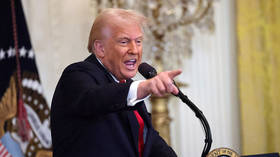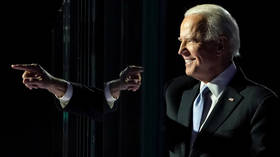5 key takeaways from England’s shift to ‘Plan B’
British PM Boris Johnson has unveiled revised Covid-19 rules, which he said are designed to stop the spread of the Omicron variant. Most will be familiar to Brits, who may feel a sense of deja vu from earlier pandemic ‘waves’.
Work from home
Those who can work from home should do so as of next week, Johnson announced in a Wednesday evening press conference, while admitting it would be “hard” for many people to make the shift. The switch back to remote working starts on December 13 and is far from the first time people in England have been asked to stay home during the workday.
Mask mandates
Masks will once again be required for entering most public venues, with seemingly-obvious exemptions for individuals who are “eating, drinking, exercising or singing.”
Covid pass
Beyond mask mandates, Covid passports will also become a requirement for anyone seeking to enter a nightclub or other theater-type venue beyond a certain size. Unseated indoor venues with over 500 guests, unseated outdoor venues with over 4,000 patrons, and any venue with over 10,000 people require Covid passes to enter. A negative lateral flow test is also sufficient, he added.
Anyone with two doses of the vaccine under their sleeve is eligible for the NHS Covid pass, though the government hinted that boosters will soon be required as well.
Preemptive strike
While the South African scientists who discovered the Omicron variant have stressed that there is not yet any cause for alarm, indicating the strain while infectious does not seem to be especially harmful, Johnson insisted there was no way to tell that it wouldn’t result in a spike of hospitalizations and deaths. Therefore, “now it is proportionate and the responsible thing to move to Plan B in England,” he said.
Not a lockdown
Despite the new rules’ close resemblance to previous lockdowns in England, Johnson insisted on Wednesday that the move to Plan B “is not a lockdown,” insisting the rules would be reviewed “no later” than early January. Speaking in Parliament at the same time as Johnson’s press conference, Health Secretary Sajid Javid told MPs that the restrictions would end on January 26.














